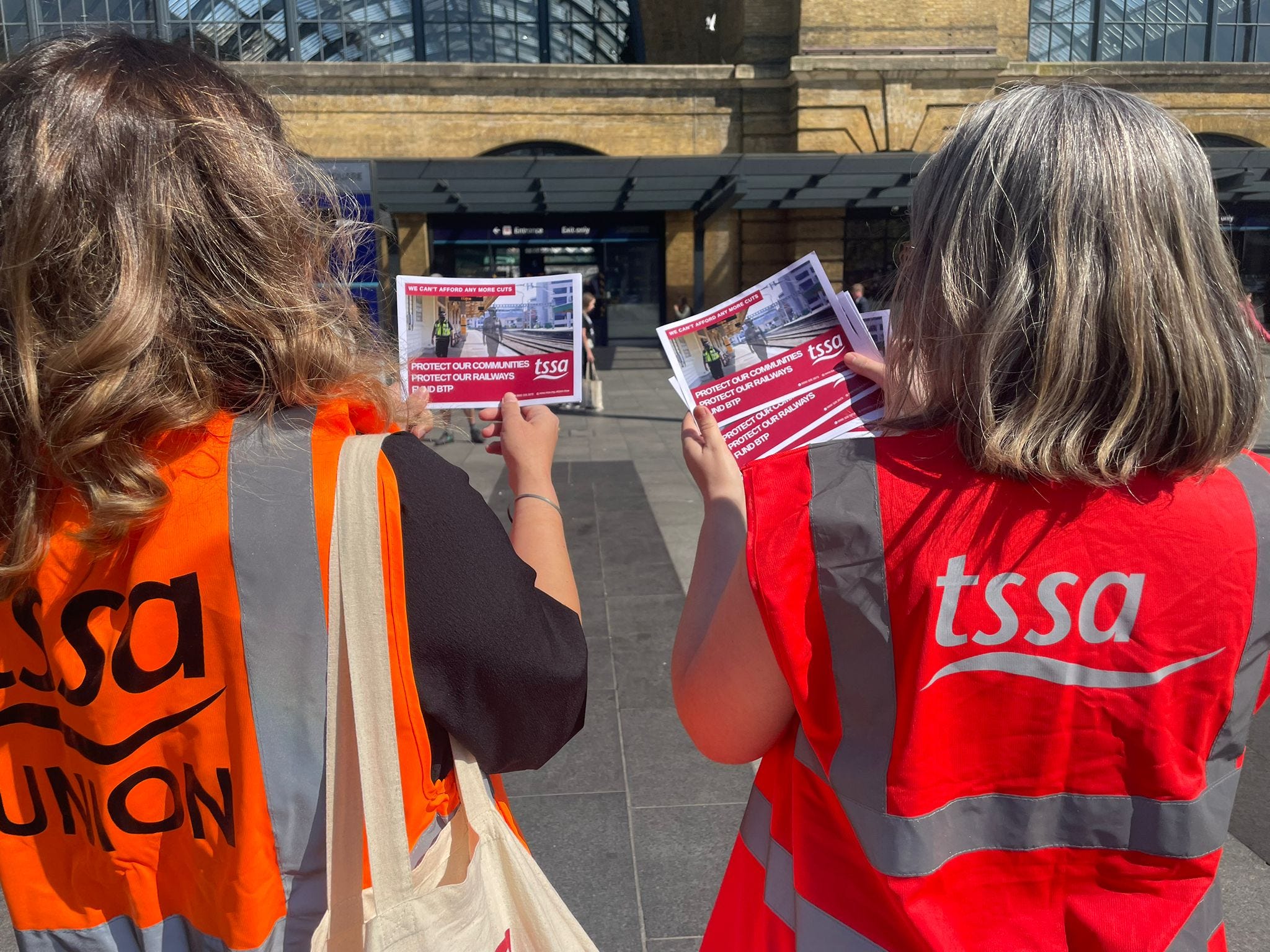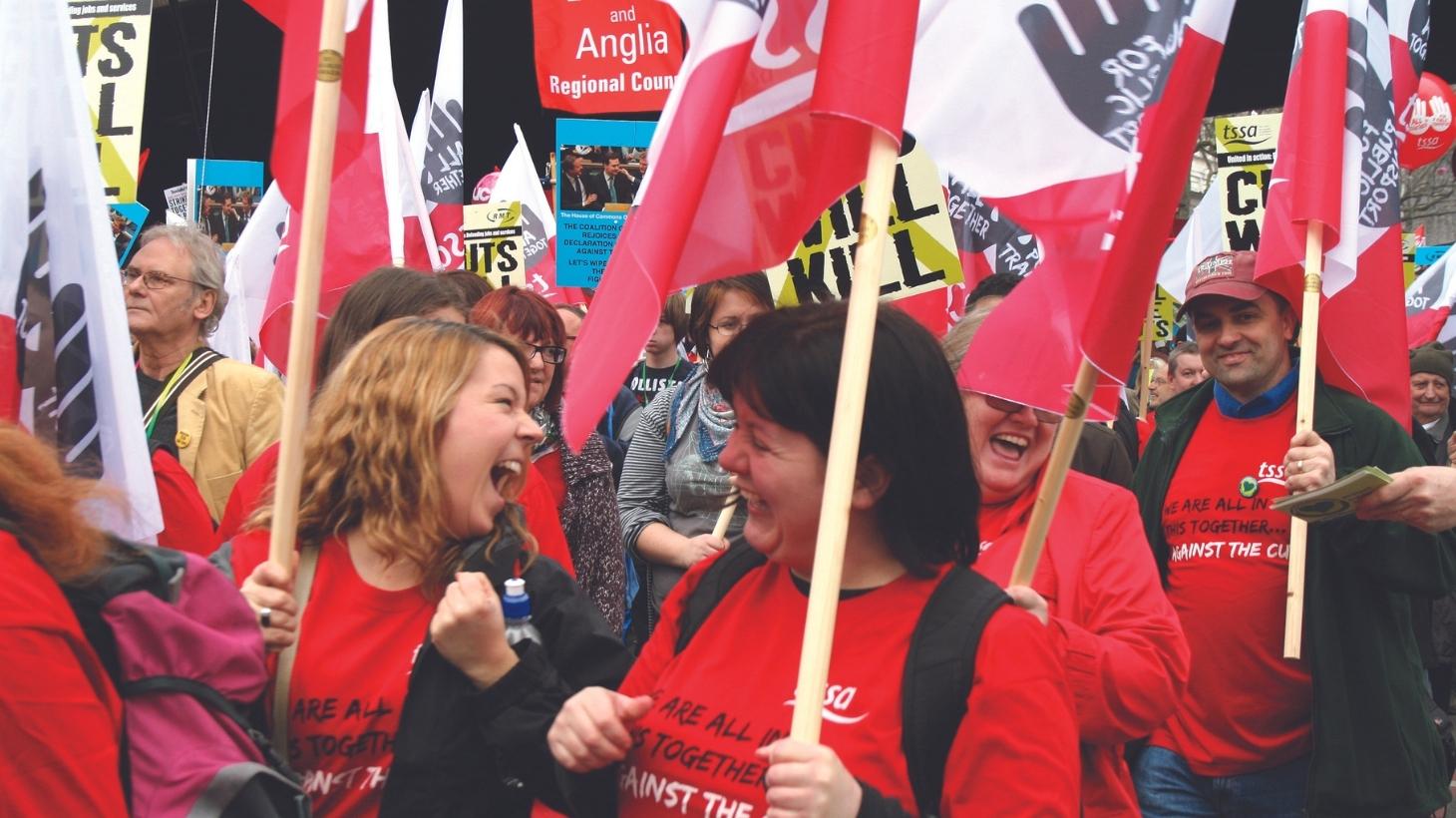NEWS.CATEGORY: Industrial
Maryam Eslamdoust on the union’s campaign to stop cuts at British Transport Police

Ahead of TSSA’s Annual Conference in Belfast this weekend - General Secretary Maryam Eslamdoust writes on the union’s campaign to stop cuts at British Transport Police.
In recent days TSSA – the union I lead – has leaned very heavily into one of the Labour government’s ‘Missions’ by launching a campaign in which we are calling for the proper funding of British Transport Police (BTP), and warning of the consequences of not doing so.
As part of his plans for changing Britain the Prime Minister, Keir Starmer, has set out a vision in which the role of the police is central. As the boss of the only union to represent staff at BTP I want to say that Labour is right that ‘when you call the police they should come. When you report a crime, it should be properly investigated no matter who you are or where you live’.
We all need that kind of security to live our lives peacefully. But this is not just about ‘Safer Streets’, the British Transport Police are integral to the safe running of our railway network right across the country.
However, their vital role is under threat, something which flies directly in the face of Labour’s missions. As our campaign points out - BTP is facing a series of damaging cuts which will potentially lead to job losses and a reduction of police stations on the railways.
For instance, the plans would leave no Transport Police station presence between Preston and Scotland, exposing both the public and railway workers to greater risk. This comes at a time when assaults on passengers have reached a record high – with close to 1000 such incidents officially recorded in the year 2023-24.
So, what’s going on? Well last year BTP asked the British Transport Police Authority (BTPA) for a funding increase of 9.8 per cent but was awarded an uplift of less than half of that figure, leaving BTP with a budgetary shortfall close to £9 million.
As a result at least 300 job roles – nearly one in five of the civilian staff - could be made redundant, with BTP station offices closing. Above all else our union demands safety on the railways every day of the year and these plans do the opposite.
We really need the Transport Secretary, Heidi Alexander, to engage with us and understand the impact of what is being proposed, otherwise rail workers will be left at greater risk, with their ability to perform their duties undermined.
That is not all of course, it’s worth reflecting here the importance of the public having the confidence to use our railways which are a key driver of economic growth at local, regional and national levels.
Amid rising violence it’s also fundamental that all passengers feel secure and confident when travelling on the rails – that means, women, girls, disabled groups and others, so we have a network fit for all. To TSSA this means making sure not only do we move to a publicly owned network, but that Great British Railways puts the welfare of women and girls, as well as the rights of disabled groups, at the heart of our rail network.
On such matters we are clear that progress comes through action. That is why our union has begun a new Women in Leadership training course, helping women to build power in the workplace, and by getting more involved in their industries and the wider labour movement.
Be in no doubt – TSSA will always act to protect our railways, doing all we can to ensure they are a service fit for all. In doing so we will continue to press ahead, making sure all voices are properly represented in our industries and society. Those are our missions, and ones the Labour government must share.

